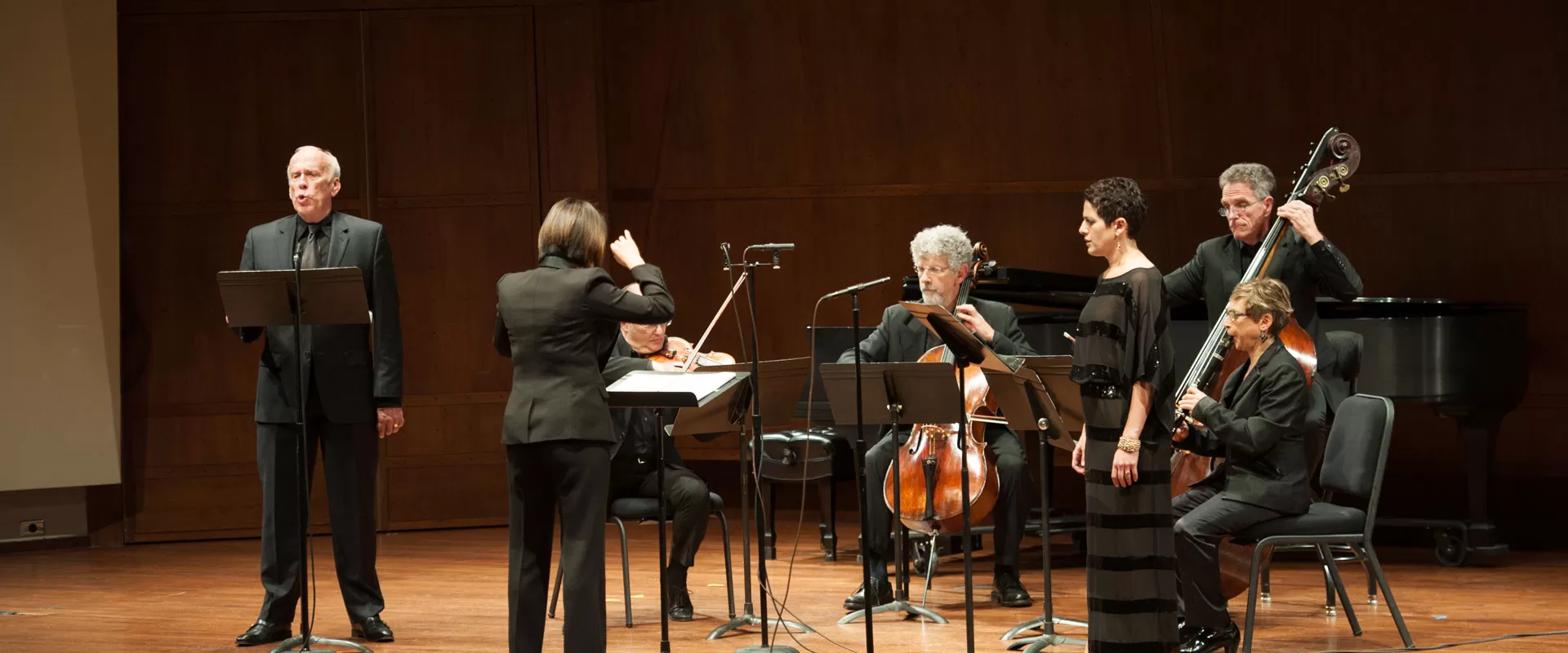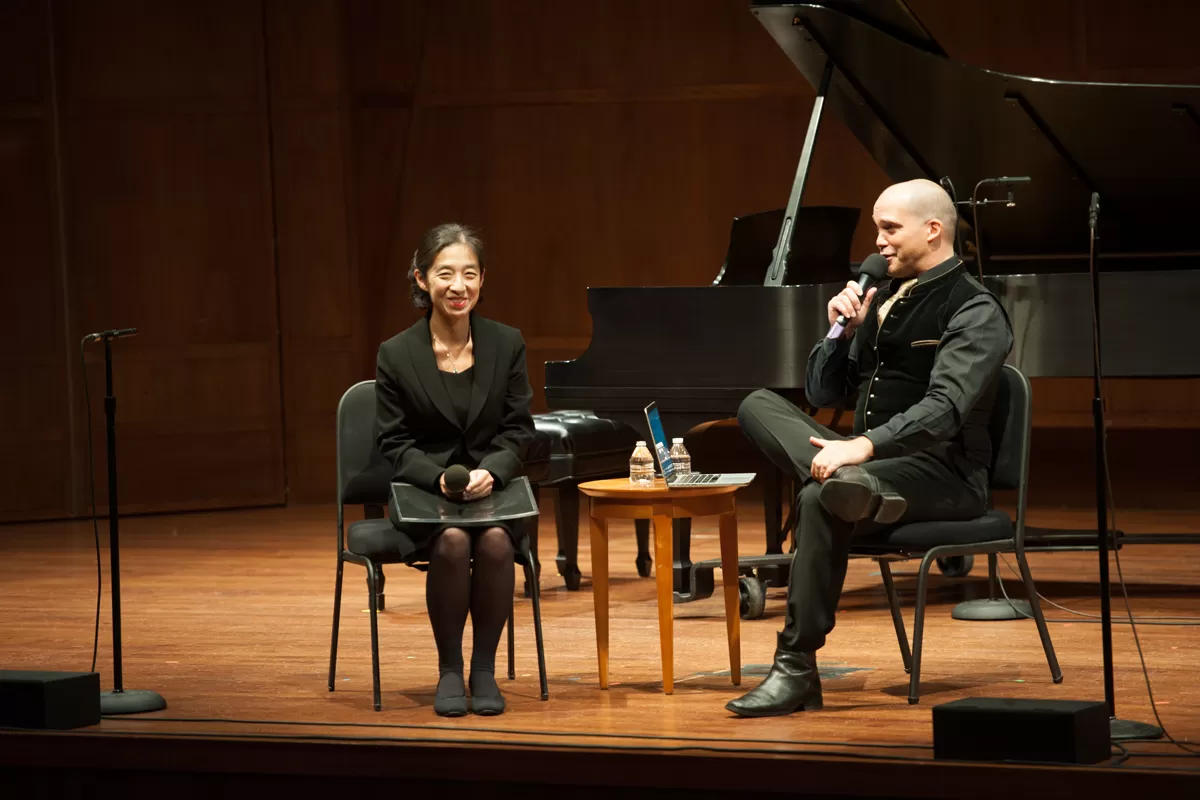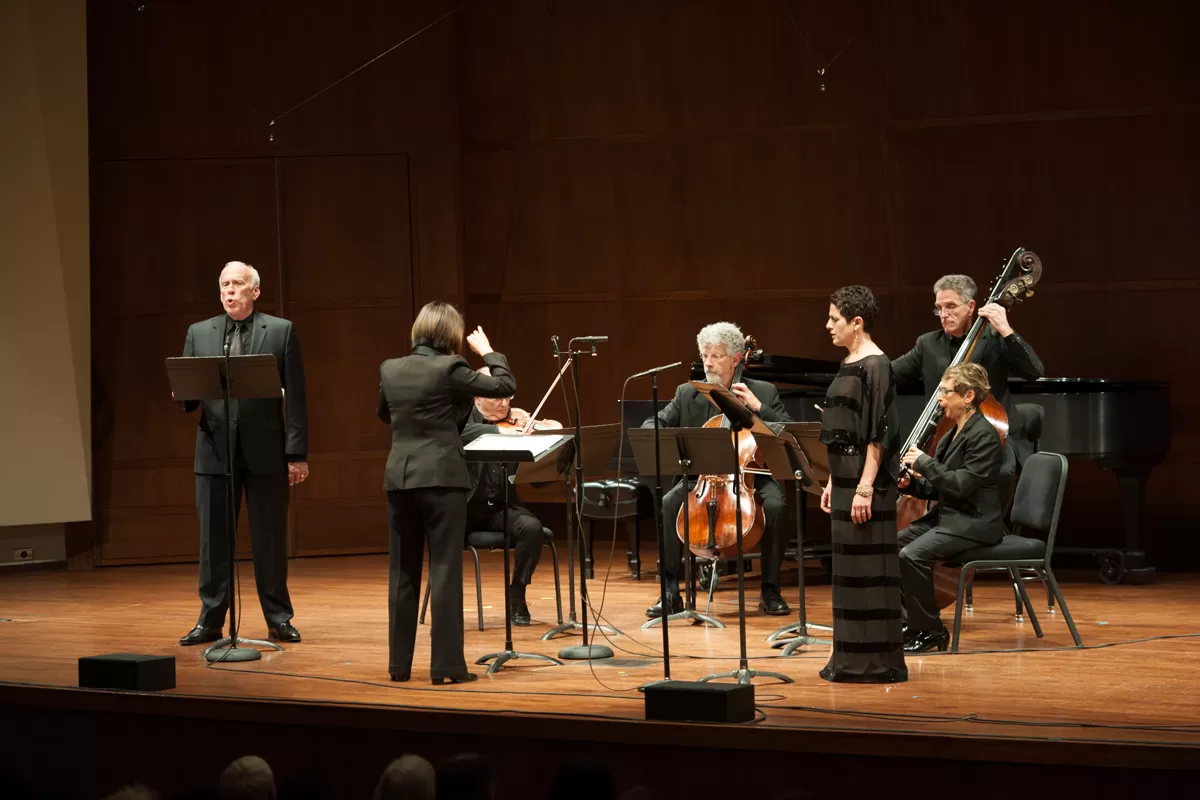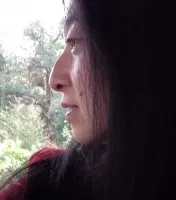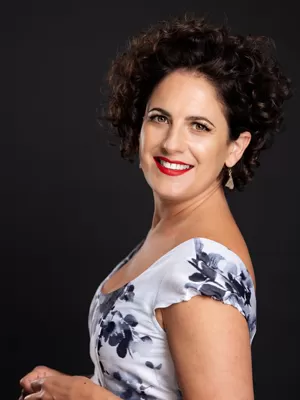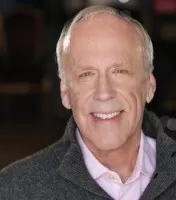Keiko Fujiie offers the following remarks:
How many times have I been in Nagasaki in the broiling sun of August 9 . . . at the stroke of 11:02, the sirens ring, the bells reply, and we citizens offer a silent prayer. Even with all my empathic power, I cannot imagine that August day. A sea of fire, flesh burning – the sudden agonies and depths of despair. We who were not present cannot possibly understand this holocaust. While checking the final instrument drafts of this work, the copyist asked me if I would like to insert a dedication to be placed under the title. I hesitated, thinking of Sumiteru Taniguchi, a Nagasaki survivor who had died just ten days before. A famous image of his wounded back rose to my mind: a boy with his skin burned horribly and an angry scarlet color. Even as he worked as a postman in Nagasaki, he dedicated his life to activism to prohibit nuclear weapons. A choice for the Nobel Peace Prize, he did not receive it despite his nomination in 2015. However, for him this did not matter. His message was unwavering for over seventy years: "No more Hiroshima, no more Nagasaki, no more Hibakusha, no more war." This phrase echoes in my work. When he gave a lecture to students in New York, he showed them the image of his ruined back. Many of them exclaimed “Oh my God!” and took photos of that photo with their smartphones. They asked if he had ever received an apology from the United States, but he was resolute in his answer: "I am not here to be apologized to, I came here to insist on the total abolition of nuclear weapons." Full of passion for his mission, and worrying incessantly about the future, his soul finally left his deeply injured body at the age of eighty-eight. Despite the damage to his body, he always looked so beautiful and calm with pathos. There was a time when artists could foresee the future. This kind of vision is vital. We should not be incapable of our own distress. We need to look to that future, and make desperate efforts for it. Sumiteru Taniguchi never appealed to pity. He wanted us to never become victims. So I dedicate my music not to him, but to you. To all of you whom he cared about. His burned body was his testament: “I want you to understand, if only a little, the horror of nuclear weapons.”
